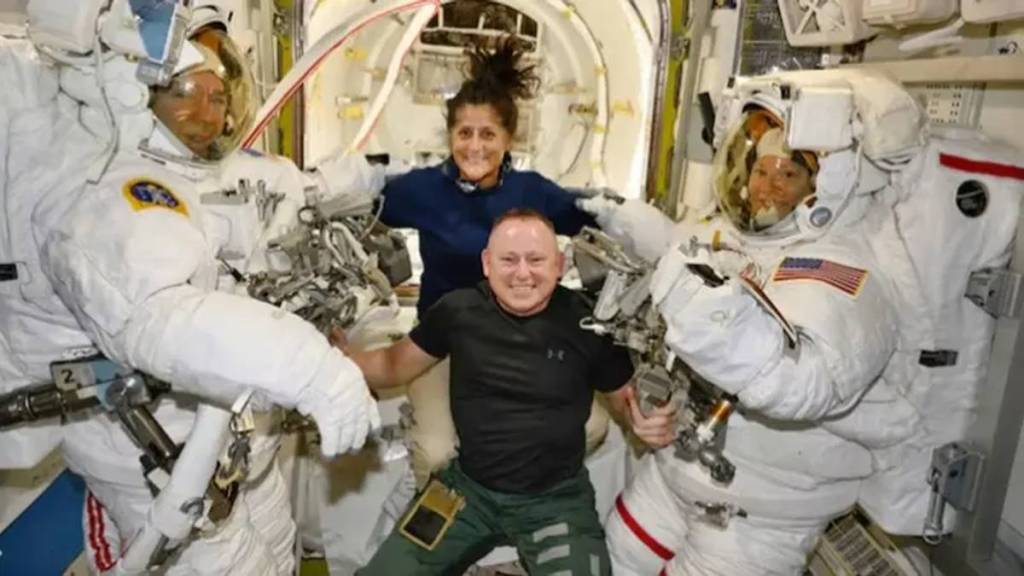Space exploration has always been a testament to human ingenuity and resilience, but it comes at a significant cost to the physical and mental health of astronauts. The allure of space often overshadows the harsh realities that come with living in an environment where gravity, a fundamental force on Earth, is almost nonexistent.
Astronauts like Sunita Williams, who have spent extended periods in space, exemplify the endurance required for such missions. However, the microgravity environment, isolation, and exposure to cosmic radiation present unique challenges that demand comprehensive strategies to ensure the well-being of those who venture beyond our planet.
Physical Challenges in Space
“One of the most immediate effects of space travel is the impact of microgravity on the human body. On Earth, gravity is constantly exerting force on our muscles and bones, which keeps them strong and functional. In space, the lack of gravitational pull leads to muscle atrophy and bone density loss. Astronauts can lose up to 1 percent of their bone mass per month in space, making long-duration missions particularly concerning for skeletal health,” Dr Srimathy Kesan, Founder, and CEO of SpaceKidz India explains to FinancialExpress.com.
Additionally, according to Dr Kesan “the microgravity environment causes fluid shifts in the body, leading to facial puffiness and increased intracranial pressure. This pressure can result in vision problems, a condition known as Spaceflight-Associated Neuro-ocular Syndrome (SANS).”
The dangers don’t end with muscle and bone deterioration. Space exposes astronauts to higher levels of radiation than they would encounter on Earth.
“Cosmic rays, which are highly energetic particles, can penetrate the body and damage DNA, increasing the long-term risk of cancer. These physical challenges necessitate rigorous preventive measures, including specialized exercise routines and nutritional plans designed to mitigate the effects of prolonged exposure to microgravity,” she explains further.
Mental Health and Well-being
While the physical challenges of space travel are well-documented, the psychological toll is equally significant. The isolation and confinement inherent in space missions can lead to feelings of loneliness, anxiety, and depression. The lack of natural light cycles in space disrupts circadian rhythms, often resulting in sleep disorders that can further intensify mental health issues. The monotonous environment, coupled with the high stakes and constant need for alertness, can contribute to mental fatigue and cognitive decline over time.
To combat these issues, space agencies like NASA and Roscosmos have implemented several strategies. Maintaining a structured daily routine is crucial for astronauts to create a sense of normalcy and purpose. Regular communication with family and mission control helps alleviate feelings of isolation, while engaging in hobbies and leisure activities provides a much-needed mental break. Psychological support is also a key component, with astronauts having access to mental health professionals throughout their missions. Post-mission, they undergo rehabilitation programs not only to recover physically but also to reintegrate into life on Earth and process their experiences.
Training and Preparation
Preparing astronauts for the severities of space travel is a complex process that requires extensive training. Russian cosmonauts undergo rigorous physical and psychological preparation at the Yuri Gagarin Cosmonaut Training Center, where they are subjected to simulations that mimic the high G-forces of launch and re-entry, as well as the psychological effects of prolonged isolation. Similarly, NASA’s astronaut training program at the Johnson Space Center includes underwater simulations to practice spacewalks, virtual reality training for handling spacecraft systems, and survival training in various environments to prepare for emergency situations.
International Collaboration in Space
The journey of astronauts like Sunita Williams highlights the importance of international cooperation in space exploration. Space has no borders, and the challenges faced by astronauts are universal. Whether they are American, Russian, or from any other nation, astronauts rely on one another for support, sharing knowledge and resources to overcome the difficulties of space travel. This collaboration underscores the shared human endeavor of exploring the unknown and the collective effort to ensure the safety and success of missions.
As humanity continues to push the boundaries of space exploration, understanding and mitigating the effects of space on both physical and mental health will be crucial. The resilience of astronauts, combined with advancements in countermeasures and international cooperation, will pave the way for the next generation of explorers to venture further into the cosmos.


